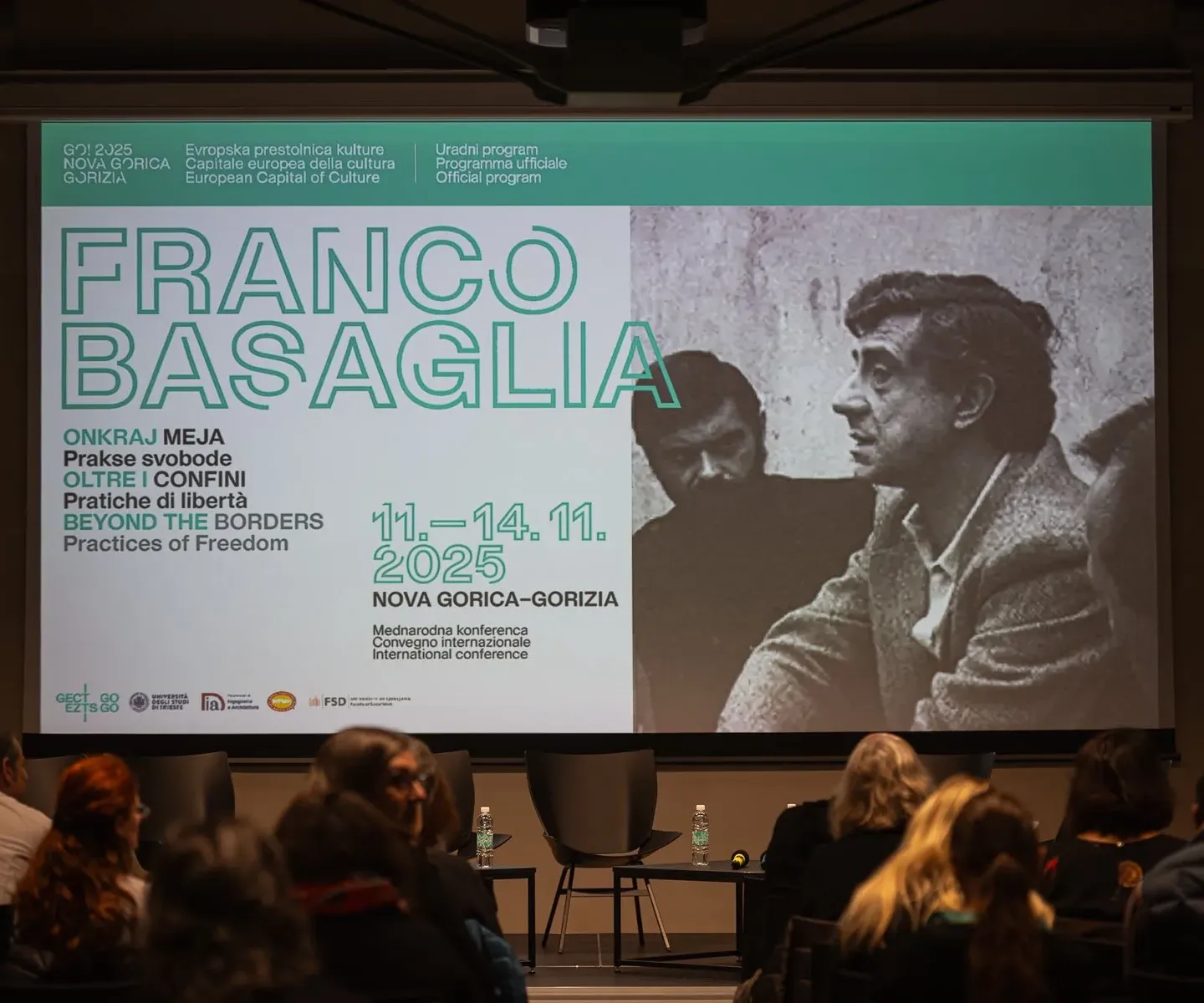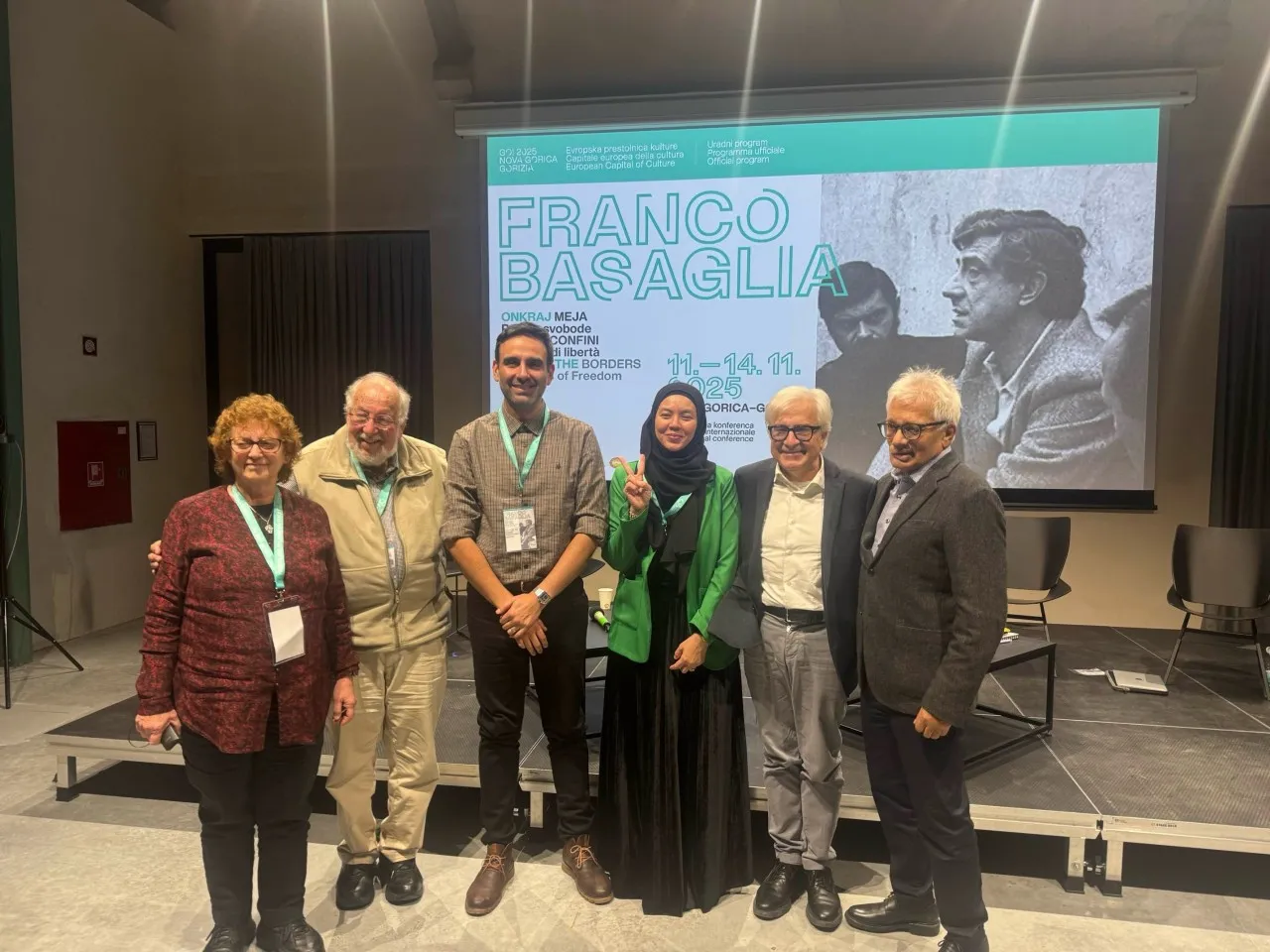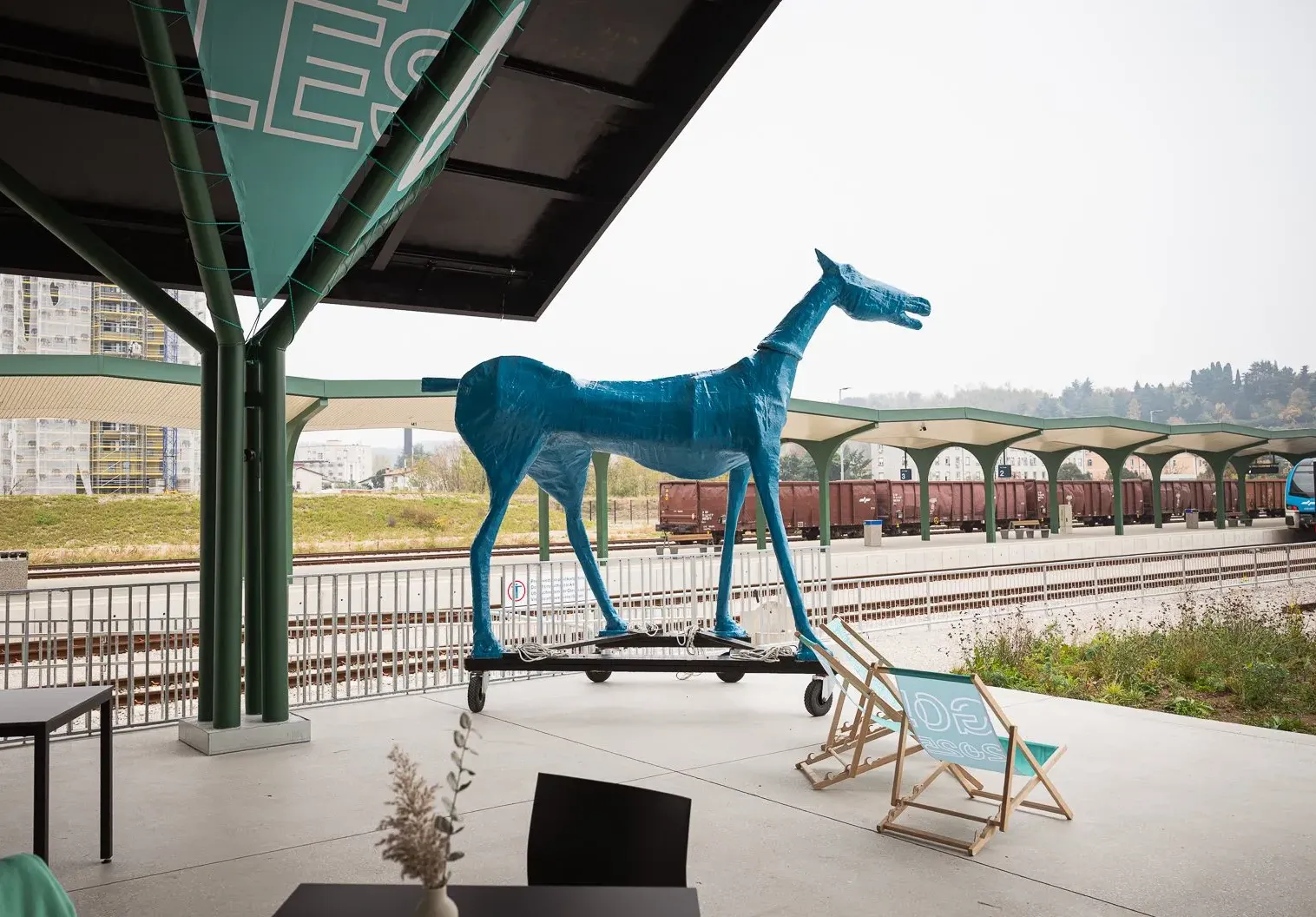Gorizia and the Global South: Transitions at the Basaglia Beyond Borders Conference
Cristian Montenegro and Delia da Mosto


Between 12–14 November 2025, Cristian Montenegro and Delia da Mosto participated in the international conference Franco Basaglia Beyond the Borders: Practices of Freedom, held across Gorizia (Italy) and Nova Gorica (Slovenia). The event — coincidentally held on the 35th anniversary of the Caracas Declaration, a landmark in Latin America’s transitions towards community-based mental health systems and the dismantling of psychiatric hospitals — formed part of the official programme of GO! 2025 – European Capital of Culture and brought together reformers, scholars, activists, and policymakers to revisit the legacy of Basaglia and explore its relevance for today’s challenges in mental health care.

Cristian took part in the roundtable “New Subjects of Change: From North to Global South” (Thursday 13 November), chaired by Prof. Sashi Sashidharan. Fellow speakers included Anita Abu Bakar (Malaysia), Alan Rosen & Vivienne Miller (Australia). His presentation, titled “Circulation and Local Re-elaboration: Psychiatric Deinstitutionalisation as an International Project,” introduced the Transitions project and reflected on how ideas of psychiatric reform have circulated globally and been reshaped in contexts such as Brazil and Chile.
The panel focused on the movement of knowledge and practice between regions, foregrounding how mental health reform is not merely transferred but reinterpreted in local political and institutional struggles. Cristian’s contribution drew on the project’s foundational questions and early insights, particularly the role of the Caracas Declaration and the epistemic asymmetries that shape what is recognised as “reform” in global debates.
The conference’s timing, on the 35th anniversary of the Caracas Declaration, gave further resonance to our presence. As a historical milestone in the region’s development of public mental health, it articulated a vision of reform grounded in primary healthcare and away from centralised psychiatric hospitals. Revisiting its legacy today, as highlighted by participants from across Latin America and Europe, underscores the ongoing importance of that unfinished agenda — and the need to understand reform as a contested, generative, and transnational process.
Beyond the panel, the conference offered a rare opportunity to connect with practitioners from Italy, Brazil, Malaysia, Slovenia, Argentina, the UK and other countries who are still engaged in sustaining and renewing Basaglia’s legacy. It was also a powerful reminder of how Basaglia’s writings continue to generate conversations across psychiatry, philosophy, human rights and sociology.
From the UK and Latin America to Palestine and Slovenia, the event highlighted the vitality of critical approaches to mental health and the need for spaces of exchange that challenge isolation — not just of people, but of ideas and systems.
Cristian and Delia da Mosto also attended a number of key sessions and engaged in conversations relevant to Delia’s doctoral research on transnational mental health reform and deinstitutionalisation.
One key reflection that emerged was that we no longer live in Basaglia’s world. Some of the challenges he and his colleagues confronted endure — human rights violations, coercive practices, and exclusion remain present in both the Global North and South. But other issues could not have been anticipated within the political and philosophical frameworks that shaped that moment of critique. Still, in our effort to think through the present, the experiences opened up in Gorizia and Trieste remain vital — not because they offer a blueprint, but because they embraced the fact that every shift provokes resistance, every movement generates its opposite, and there are no guarantees — not in science, nor in law. It is through reflection and honest dialogue that alliances for transformation and hope emerge — a spirit that also animated the Caracas Declaration and its legacy.
